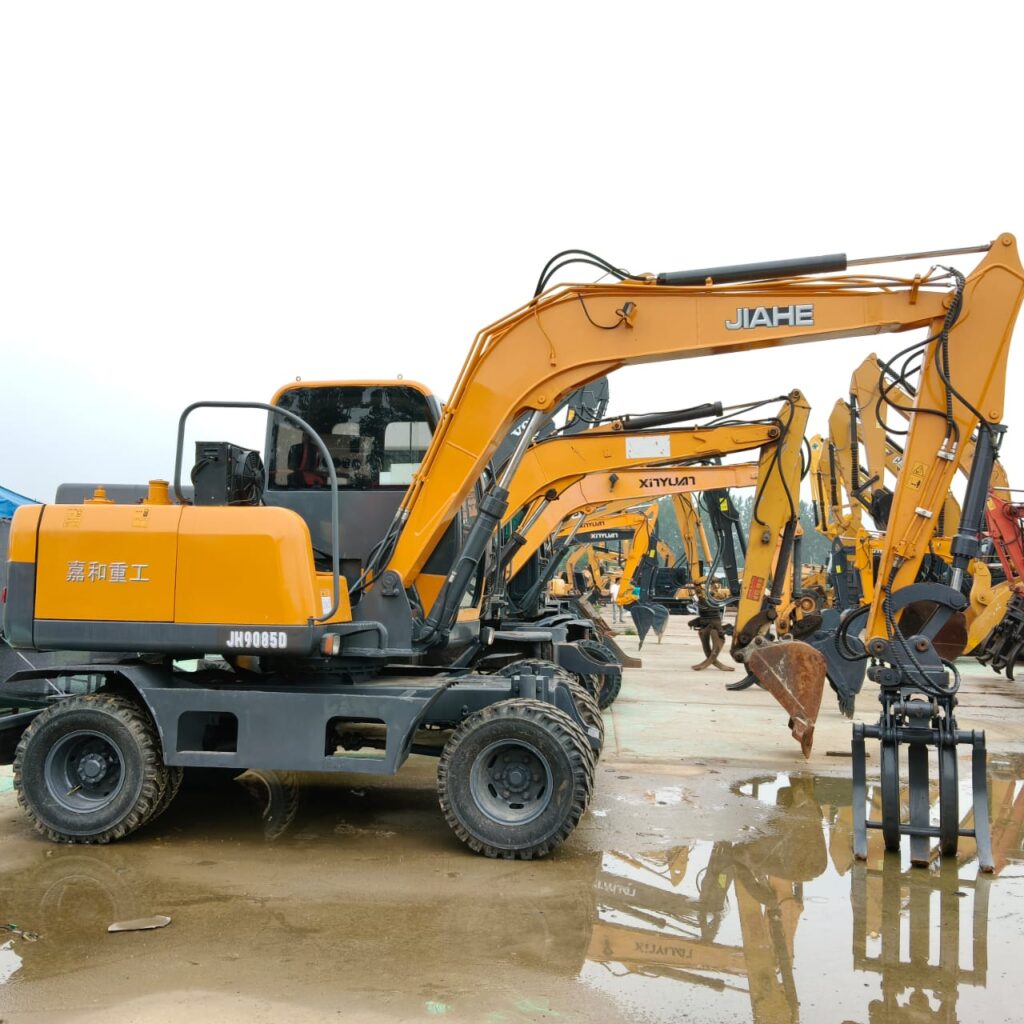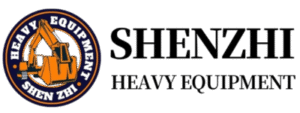When it comes to purchasing heavy equipment for construction, excavators are often at the top of the list. These versatile machines are essential for digging, demolition, material handling, and many other tasks on job sites. One of the most common dilemmas contractors and companies face is whether to invest in a brand-new excavator or go for a used excavator. Each option comes with its own set of advantages and challenges.
In this article, we’ll explore three major factors to consider—cost, performance and reliability, and resale value—to help you make the right decision based on your operational needs and budget.

1. Cost and Budget Flexibility
One of the most significant differences between new and used excavators is the price. A new excavator typically comes with a much higher upfront cost. Depending on the model, size, and features, a new machine can cost anywhere from $100,000 to $500,000 or more. For small to mid-sized contractors or startups, such an investment can be a huge financial burden.
On the other hand, a used excavator is considerably more affordable. Many high-quality pre-owned excavators are available at 30% to 60% of the price of a new one. This makes second-hand excavators an attractive option for buyers looking to control expenses while still acquiring essential equipment.
Some of the key cost-related advantages of buying a used excavator include:
Lower initial investment: Reduces capital expenditure and allows more room in the budget for other necessary equipment or operational needs.
Faster return on investment (ROI): Because of the lower purchase price, used machines can often pay for themselves quicker through completed jobs.
Lower insurance premiums and taxes: Insurance and taxes are typically based on the value of the equipment, which is lower for used machines.
In short, if your budget is limited or you’re trying to minimize financial risk, a used excavator could be the smarter choice.
2. Performance, Reliability, and Maintenance
Many buyers assume that only a new excavator can guarantee top performance and reliability. While it’s true that a new machine will have the latest features, zero wear and tear, and a full factory warranty, this doesn’t mean that used machines cannot perform effectively.
Today’s excavators are built with durability and longevity in mind. A well-maintained used excavator can easily function at a high level for thousands of hours. In fact, many construction companies regularly buy and sell used machines that still have a long working life ahead of them.
Here’s why a second-hand excavator can still be a reliable option:
Thorough inspection history: Many used excavators come with detailed service records, showing consistent maintenance and care.
Rebuilt components: Some reputable sellers refurbish essential components, like engines or hydraulics, before resale.
Proven work history: A machine with a good operational record gives confidence that it can handle your specific job site demands.
Of course, it’s essential to buy a used excavator from a trusted dealer or seller who provides full transparency on the equipment’s condition. Getting the machine professionally inspected before purchase is also highly recommended.
3. Resale Value and Depreciation
All machines depreciate over time, but the rate of depreciation varies significantly between new and used equipment. One of the main drawbacks of buying a new excavator is that it loses a large portion of its value within the first few years—often as much as 20-30% in the first year alone.
By contrast, a used excavator has already undergone its steepest depreciation before you purchase it. As a result, the resale value of a well-maintained used machine tends to hold up better over time.
Benefits in terms of resale and depreciation for used machines include:
Slower depreciation: You won’t experience the rapid value drop that happens with new equipment.
Better resale prospects: If you decide to upgrade or switch to a different machine later, you’re more likely to recover a higher percentage of your initial investment with a used machine.
Market demand: There is always a strong secondary market for quality used excavators, especially from reputable brands like Caterpillar, Komatsu, Hitachi, and Volvo.
This makes a used excavator not just a tool but also a valuable asset that retains a good portion of its worth.
Additional Considerations When Choosing a Used Excavator
Beyond the core factors of cost, performance, and resale value, there are several additional elements that make used excavators an even more appealing option for many buyers in the construction industry.
1. Wider Selection and Availability
The global market for used excavators is vast and highly diverse. Buyers can often find a wide range of brands, models, and specifications to meet their exact project needs. Whether you’re looking for a compact excavator for urban projects or a heavy-duty unit for mining and large-scale earthmoving, the used market offers options that might be unavailable or on long waitlists for new purchases.
Quick delivery times: Unlike new machines that may have manufacturing or shipping delays, many used excavators are available for immediate purchase and deployment.
Customization potential: Some used units come with attachments or upgrades already installed, saving buyers additional costs on accessories like buckets, hydraulic thumbs, or couplers.
2. Environmentally Friendly Option
Purchasing a used excavator can also be a more sustainable choice. Reusing machinery helps reduce the environmental impact of manufacturing new equipment. It extends the lifecycle of existing machines and reduces industrial waste.
Lower carbon footprint: By choosing a second-hand excavator, buyers contribute to a circular economy that values reuse and resource efficiency.
Eco-conscious branding: Construction companies that emphasize sustainability can also promote their choice of used equipment as part of a greener business strategy.
3. Training and Operator Familiarity
Another subtle but practical advantage of buying a used excavator is the increased familiarity many operators have with older models. Newer machines often come with complex technology, digital displays, and learning curves that require additional training.
Used machines, especially those from well-known brands, typically have simpler controls and interfaces that experienced operators already understand. This leads to:
Faster onboarding: Less downtime spent learning machine controls.
Lower risk of operational errors: Familiar systems reduce mistakes on-site, improving productivity and safety.
In summary, the decision between a new excavator and a used excavator should be made after considering not only upfront costs and resale value, but also factors like availability, sustainability, and ease of use. With proper inspection, reputable sourcing, and ongoing maintenance, a used excavator can be a high-value asset that delivers consistent performance at a fraction of the cost.
If you’re exploring your first machine or expanding an existing fleet, don’t underestimate the long-term benefits of choosing a second-hand excavator that meets both your budget and your operational goals.
Is a New or Used Excavator Better?
There is no one-size-fits-all answer. The better choice between a new and a used excavator depends on your business goals, financial resources, and how you intend to use the equipment.
Choose a new excavator if you require the latest technology, longer manufacturer warranties, and plan to use the machine intensively for many years.
Opt for a used excavator if your budget is tighter, you need quicker ROI, and you are comfortable with properly inspecting and maintaining used equipment.
Ultimately, many experienced contractors start with used excavators to build their fleet cost-effectively, then upgrade to new machines as their business grows. With a wide range of options available in the market today, choosing a high-quality second-hand excavator is not just practical—it’s often the smartest move.
